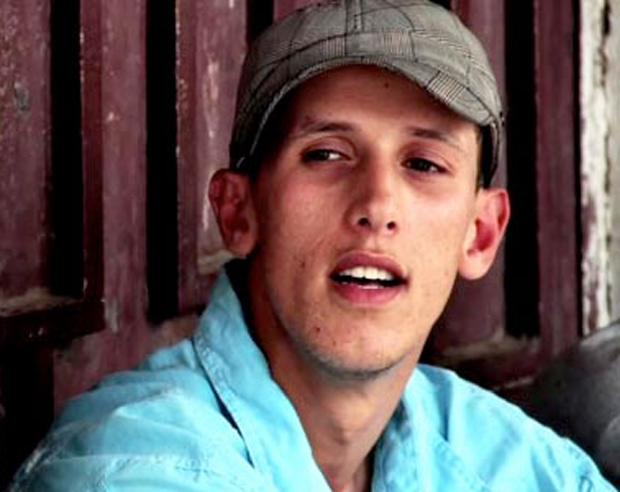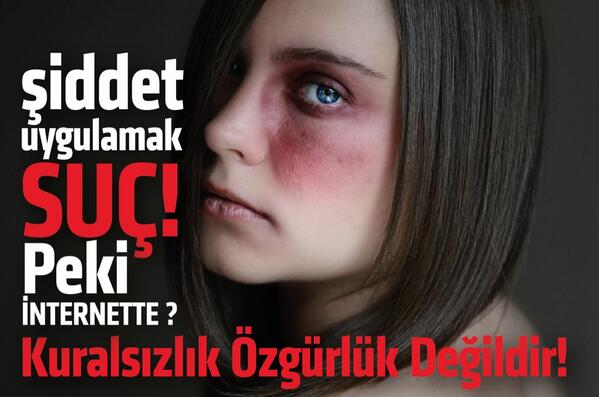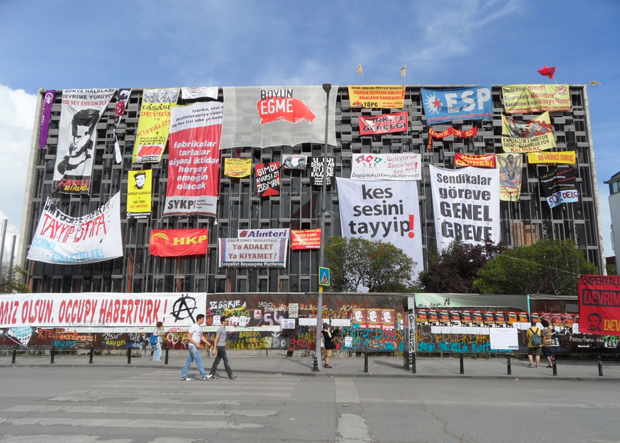Index relies entirely on the support of donors and readers to do its work.
Help us keep amplifying censored voices today.

The Moroccan rapper Mouad Belghaoute – also known as Lhaqed or El Haqed, ‘the enraged one’ – was sentenced on 1 July 2014 to four months in prison amid concerns that the trial was unfair, and that he is being held because of his popularity and lyrics that condemn corruption and police brutality. Arrested on 18 May, the 26-year-old rapper is expected to remain in prison until mid-September.
In an Open Letter to the Moroccan Minister of Justice and Liberties El Mustapha Ramid, 11 organisations committed to the defence of the rights to freedom of expression, culture and the arts have condemned the four-month sentence served against Mouad Belghouate following a trial that fell short of international standards:
7 July 2014
Mr El Mustapha Ramid
Minister of Justice and Liberties
Ministère de la Justice et des libertés Place El Mamounia – BP 1015
Rabat
Morocco
Fax: +212 537 73 47 25
We the undersigned organisations committed to the defence of the rights to freedom of expression, culture and the arts, condemn the four-month sentence served against musician Mouad Belghouate (aka El Haqed) following a trial that fell short of international standards. We are concerned that the sentence has been given in retribution for his involvement in Morocco’s pro-democracy movement, and specifically his condemnation of corruption and police violence through his music.
Convicted of assaulting police officers during an incident in Casablanca on 18 May 2014, evidence including testimonies of witnesses to the incident were not accepted by the court. This led defence lawyers to withdraw from the proceedings calling them “unjust” and “unfair”.
This is the third incident since 2011 where Belghouate has been imprisoned following trials that have been condemned as highly flawed. Notably in May 2012 he was imprisoned for 12 months for insulting police in a song and its accompanying video, a charge that clearly violated his rights to freedom of expression.
Belghouate has been closely engaged with the 20th February democracy movement, and he has been openly critical of corruption in Morocco and accused police of brutality in his lyrics, leading to concerns that these are the source of the accusations against him, concerns that are heightened by trial irregularities.
Morocco has ratified the International Covenant on Civil and Political Rights which includes the rights to freedom of expression and fair trial. We therefore call on the Moroccan authorities to immediately release Mouad Belghouate and to ensure that any appeal be carried out fairly and include all evidence and witnesses relevant to the case.
Yours sincerely,
Arterial Network
ARTICLE 19
European Composer and Songwriter Alliance
European Council of Artists
freeDimensional
Freemuse
Index on Censorship
Initiative for Freedom of Expression, Turkey
Equity’s International Committee for Artists’ Freedom (ICAF)
Observatoire de la liberté de creation, France
Vivarta
Copies to:
President of National Human Rights Council Mr. Driss El Yazmi
Minister of Culture, Mr Mohamed Amine Sbihi
Association Marocaine des Droits Humains (AMDH), Mr. Ahmed El Haij (President)
» Arabic: المغرب: رسالة مفتوحة إلى وزير

Turkish Prime Minister Recep Tayyip Erdogan (Photo: Philip Janek / Demotix)
In February, Turkish president Abdullah Gül prompted intense criticism when he approved restrictive new amendments to the law that regulates internet activity in Turkey, known as 5651. Since then, the Turkish government has continued to threaten internet freedom, placing added pressure on social media platforms. Earlier this month, prime minister Recep Tayyip Erdoğan suggested that his government could block access to Facebook and Youtube after municipal elections on 30 March.
With over 34 million Facebook active users, Turkey is among the top 15 countries on the platform, and both the prime minister and Gül each have over four million Twitter followers. One day after Erdoğan’s statement during a live television interview, Gül countered that blocking access to social media was out of the question. Last week, Erdoğan followed by backtracking on his own comments.
Considering the already strained relationship that Erdoğan’s government has to social media, the turnaround on his comments is still no promise that there may be less restrictions on internet freedom to come in Turkey. In recent months, a number of wiretapped telephone recordings, allegedly of Erdoğan’s conversations, have been leaked onto social media platforms, including YouTube, SoundCloud and Vimeo, suggesting the prime minister’s meddling in corruption and intimidation of mainstream media. On the day that Erdoğan’s television interview aired, a new phone conversation was leaked onto YouTube, purportedly featuring the prime minister berating the media magnate Erdoğan Demirören for coverage in his daily Milliyet of a 2013 peace talk with Abdullah Öcalan of the separatist Kurdish Workers’ Party (PKK).
Erkan Saka, an assistant professor at Istanbul Bilgi University and a researcher on new media, says
Erdoğan’s comments about Facebook and YouTube reflect his interest in controlling Turkish media. “Most of the mainstream media is already under their control, so this seems to be the only way now for people to express their opposition,” Saka said. With leaks appearing on video or audio sharing websites and spreading through Twitter and Facebook, social media platforms have become instrumental for circulating information related to the ongoing government corruption scandal.
Shutting down entire websites as Erdoğan suggested would mean going beyond the very recent amendments to law 5651 that make possible URL-based blocking of individual web pages ruled offensive, without restricting access to entire websites. YouTube was previously censored in Turkey for over two years after a video was posted on the site that was deemed insulting to Mustafa Kemal Atatürk, the founder of the Turkish Republic. Earlier this year, Vimeo and SoundCloud were both temporarily shut down within Turkey following leaks that were published on those websites. Lawmakers from Erdoğan’s party, the AKP, have defended the controversial new version of 5651 because it allows for an alternative to restricting access to entire websites. Supporters of the law claim that with URL-based page blocking, defamatory content can instead be removed selectively.
In the run up to the elections at the end of this month, the recurring leaks and violent protests around Turkey threaten to tarnish Erdoğan’s popularity with voters. Responding aggressively in the televised interview, Erdoğan’s derision of social media platforms is personal, tactical, and aimed to discredit the websites as a threat to internet users’ safety. “We will not leave this nation at the mercy of YouTube and Facebook,” the prime minister said in his interview with journalists on broadcaster ATV. Calling the websites immoral, Erdoğan added, “they don’t have limits.” By casting social media websites as damaging to all internet users in Turkey, Erdoğan set the stage for potentially restricting access to those sites on moral grounds. Even after correcting his statement, Erdoğan’s suggestion that social media platforms are a source of danger is in line with his government’s use of internet filtering programs and ad campaigns that portray the internet as debauched to justify restricted access to content it considers harmful.
Aside from facing access restrictions, websites operating from Turkey are forced to comply with other laws that compromise their users’ privacy. Sedat Kapanoğlu, founder of the popular satirical, user-generated online dictionary Ekşi Sözlük, says internet companies in Turkey are put under pressure by laws requiring them to share user data. “A successful platform must create a free environment which protects its users’ rights. We are not able to do that. We are forced to provide IP addresses to prosecution even for completely legal content,” Kapanoğlu said.
One of the social media websites that Erdoğan singled out in his interview, Youtube, which is owned by Google, has an office in Turkey, while other large platforms like Facebook, SoundCloud, Vimeo, and Twitter do not.
Although he later rescinded his original statement, Erdoğan’s recent threat is alarming because it shows that in Turkey’s precarious climate for media independence, it might be plausible for his government to increase control of social media. With elections approaching this month, Erdoğan is himself coming under more pressure to win votes while facing a corruption scandal playing out on social media. The amendments to 5651 already make it easier for the Turkish Directorate of Telecommunication (TİB) to remove web pages from the internet. As more leaks continue to emerge, there is a lingering risk of new restrictions targeting social media platforms that have been at the centre of freedom of speech debates in Turkey.
This article was posted on 19 March 2014 at indexoncensorship.org

Over the past few weeks, the ruling Justice and Development Party (AKP) in Turkey has deployed a curated mix of paid-for advertising, op-eds in pro-government newspapers, tweets and off-the-cuff press statements to justify their curbs on internet freedom.
One of the most persistent tactics used by AKP has been so-called “porn lobby” smearing. Back in 2011, Umit Boyner, an ex-retail executive and president of the Turkish Industry and Business Association, was decried as “pro-porn” for being anti-censorship. Not only porn – “violent websites,” “instructions on how to kill your mother”, “sex with animals” and more lurid possibilities would come about, argued Bulent Arinc, deputy prime minister, if access to the web was unfettered.
More recently, pro-government newspaper The Star, convinced readers that censorship opposition was coming from the vaguely described “porn lobby.” “So would you want your child to be a victim of sexual abuse, porn, gambling or other hideous acts?” asked editors.
Tweets from AKP deputy Necdet Unuvar (“Today is safer Internet day, they used to call this a censure but they do not anymore,”) and another deputy, Cevdet Erdol, (“All forms of addiction: tobacco, drugs, alcohol, weed, Internet whatever they might be, we continue our struggle against them. For our kids“) sought to conjoin 5651 censorship with AKPs conservative, quasi-religious philosophy: As one analyst translated it “high moral laws: morals to protect the youth.”
The AKP also launched a paid-for advertising campaign: A bruised woman, clearly the victim of domestic violence, with the strapline “Violence is a crime. What about the Internet? Absence of rules does not mean liberty!”
Internet commentator Glyn Moody, who blogged about the bizarre campaign for Techdirt, told Index on Censorship “This extraordinary ad belongs to a tradition of regarding the online world as a kind of lawless “Wild West,” that needed to be tamed.”
Erdogan has also been keen to draw comparisons internationally. On the same day as 2000 protesters clashed with water-cannons in Istanbul, he told a journalist working for Al Jazeera TV network “Turkey is almost more free than some states of the European Union.” He justified his claim: “When you refer to the Gezi Park events, why do you not see the events in Frankfurt, Hamburg? Have you seen what the police did there? Why do you not see [sic] what happens in England?”
Prosecutors in Germany and England were accused of being heavy-handed after protests and street unrest in Frankfurt, Berlin and London in 2011 were met with long jail sentences.
Bulent Arinc has also argued, that Turkey is “freer compared to many other countries,” and “has freedom of the press,” although a week later international NGO Reporters Without Borders slammed the nation in a global survey of journalistic freedoms, ranking it 154th globally.
Pro-government newspapers have even posited a slightly dubious economic argument : Sabah, a daily newspaper considered very favourable towards AKP, argued that Silicon Valley giants would be keener to participate in the Turkish market as the legislation removed prison sentences in favour of punitive fines.
So did all this work? It depends on how you judge success. Emre Kizilkaya, a Turkish journalist, sees censorship as a partisan issue anyway.
“Most AKP voters support it, while almost all opposition voters are against it. So, it has become a partisan issue. As such, the PR campaign probably didn’t swing votes – but it further cemented the position of AKPs own voters.”
Pinar Tremblay, a Turkish analyst and academic, thought understanding of the laws was limited. “The majority of the people are not yet aware what the law entails, because they have not yet experienced it.”
“No matter what the government may say about protecting children or stopping violence against women through censorship,” said Gurkan Ozturan, a citizen journalist and blogger based in Turkey. “everybody knows that those issues are not being addressed to in real life, physically on the street.”
He goes on “This bill has been prepared to re-initiate the government of fear in Turkey. But as with OccupyGezi protests the people have passed beyond the fear-threshold.”
If polling data is to be believed, the AKP now commands 40-50% of Turkish approval ratings. But 5651 has provoked intense street protests, condemnation from human rights groups, and even comparisons with the early days of the Third Reich.
The passing of the legislation provoked half a million tweets, according to media reports, split across English and Turkish hashtags. The pro-censorship hashtag received a handful in comparison.
Still, President Gul – who still needs to ratify the bill, has indicated he will. Turkey is going dark, soon.
This article was posted on February 17, 2014 at indexoncensorship.org

Limitations and challenges to freedom of expression and of assembly in Turkey have – once again – come to international attention over the past year. But despite this, censorship of the arts is often under-reported.
Siyah Bant was founded in 2011 as a research platform that documents censorship in the arts across Turkey by a group of arts managers, arts writers and academics working on freedom of expression. The group is concerned that many instances of censorship in the art world, especially in the visual and performing arts, were under-reported and only circulated as anecdotes. Siyah Bant also found the blanket understanding that “it is the state that censors” to be insufficient.
The Gezi Park protests that began in late May 2013 not only highlighted the continued existence of police violence and the institutionalized use of excessive force that has long been a familiar sight in the Kurdish region, and, more recently, in the protests against hydroelectric plants in the Black Sea parts of Turkey. The demonstrations also made apparent the tight grip that the alliance of political establishment and business conglomerates have over Turkish print and broadcasting media, as numerous journalists were fired for reporting on the anti-government protests.
Together with China and Iran, Turkey has been taken the lead in terms of numbers of imprisoned journalists, many of which are charged under anti-terrorism laws. Currently, all eyes are on the amendments to internet law 5651 that passed parliament in early February 2014, now waiting to be signed into effect by President Abdullah Gül.
While the government claims these changes are to ensure privacy and clamp down on pornography, activists maintain that the law will procedurally ease the profiling of internet users and effectively heighten government control over online content. Turkey has already a questionable track record when it comes to internet freedom with access to more than 40,000 internet sites being restricted.
Rather than operating through bans and efforts at complete suppression that marked the 1980 coup d’état and its aftermath, the current censorship mechanisms in Turkey aim to delegitimize and discourage artistic expressions and their circulation.
Siyah Bant’s initial aim was two-fold: Firstly, the group conducted research in five cities to identify and examine different modalities of censorship and the actors involved in censoring motions. Secondly, Siyah Bant wanted to create awareness around censorship in the arts and facilitate solidarity networks in the advocacy for freedom of expression in the arts.
In the course of its research it set up a website that documents arts censorship in Turkey and assembled two publications. The first presents selected case studies of censorship in the arts in Turkey as well as international initiatives in the fight for freedom of expression. The second focuses more closely on artists’ rights and the legal framework of freedom of the arts in Turkey as well as the ways in which these laws are applied–or not applied, in most cases.
The reports below center on new developments in Turkish cultural policy and their effects on freedom of arts as well as interviews conducted in Diyabakir and Batman where artists engaged in the Kurdish rights struggle have long been subjected to differential treatment by the Turkish authorities. Research for these reports was supported by the Friedrich Ebert Foundation.
• Developments in cultural policy and its effects on freedom of the arts, Ankara
• Artists engaged in Kurdish rights struggle face limits on free expression
This article was published on 13 February 2014 at indexoncensorship.org